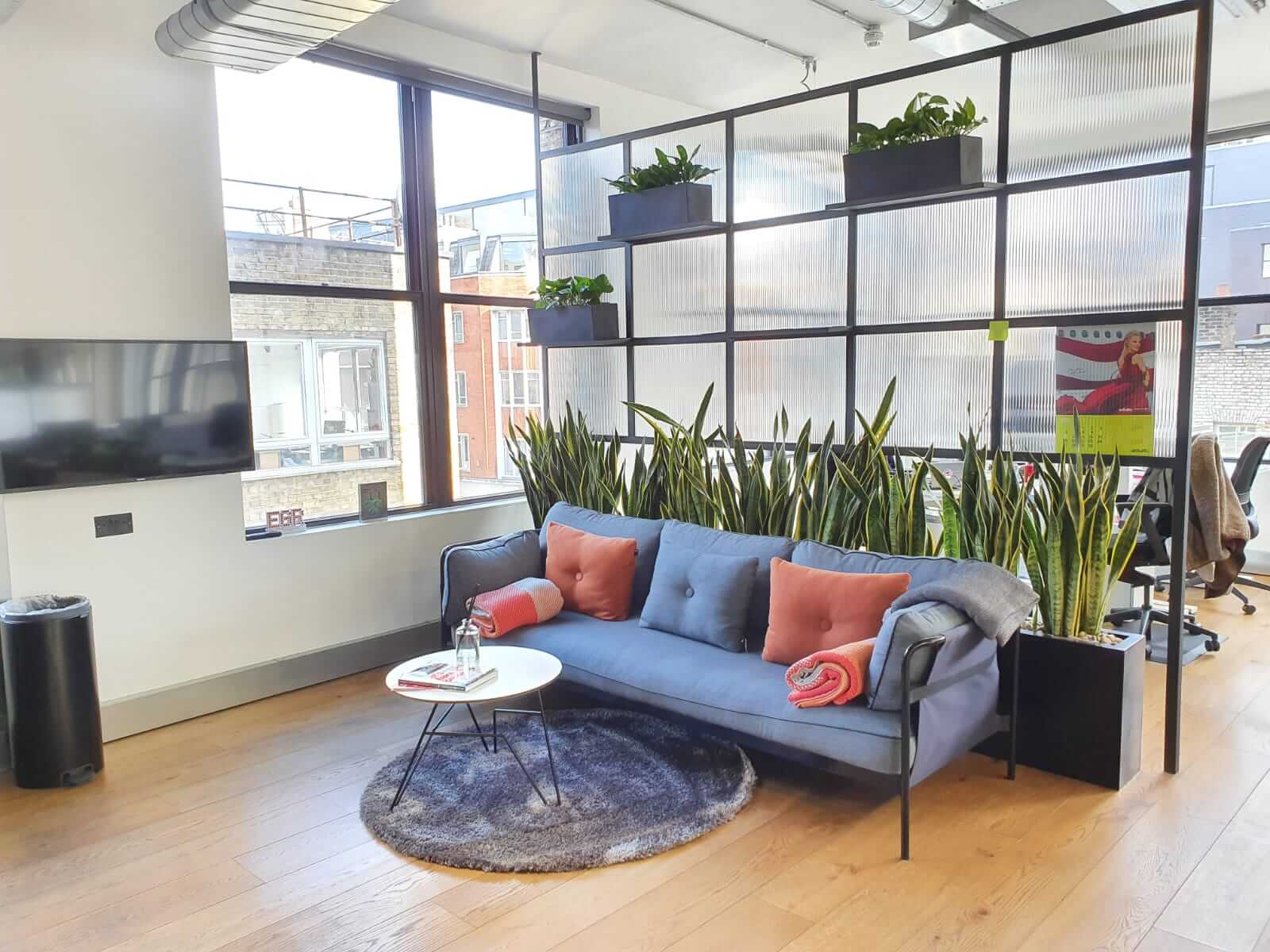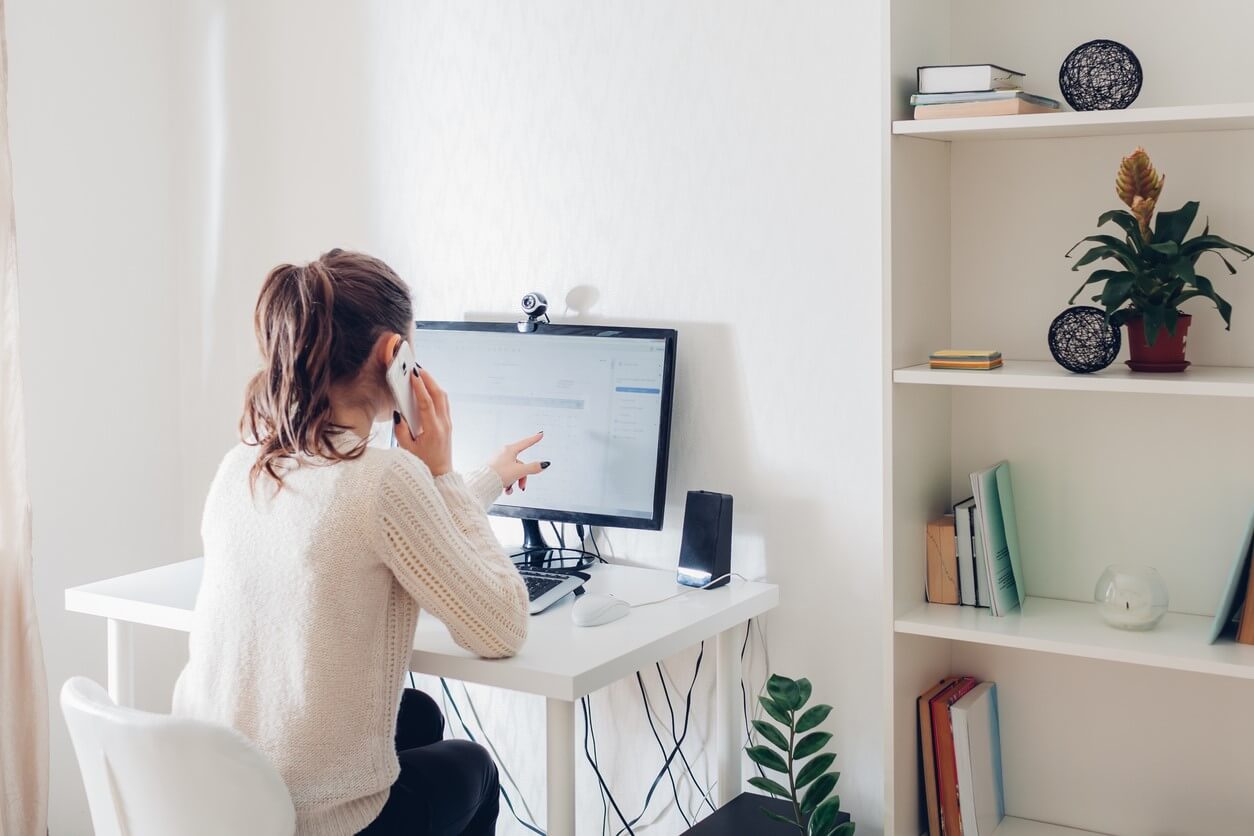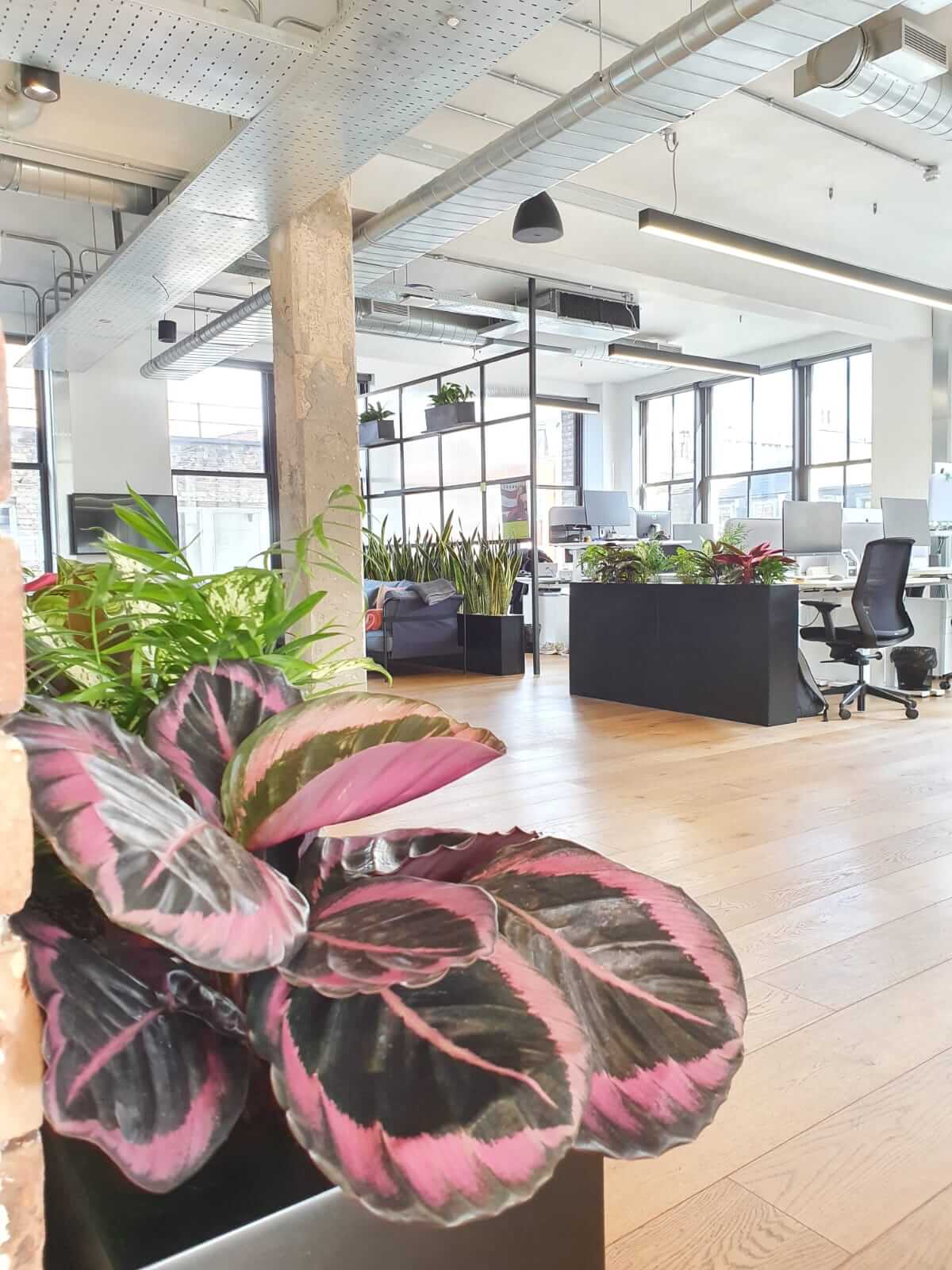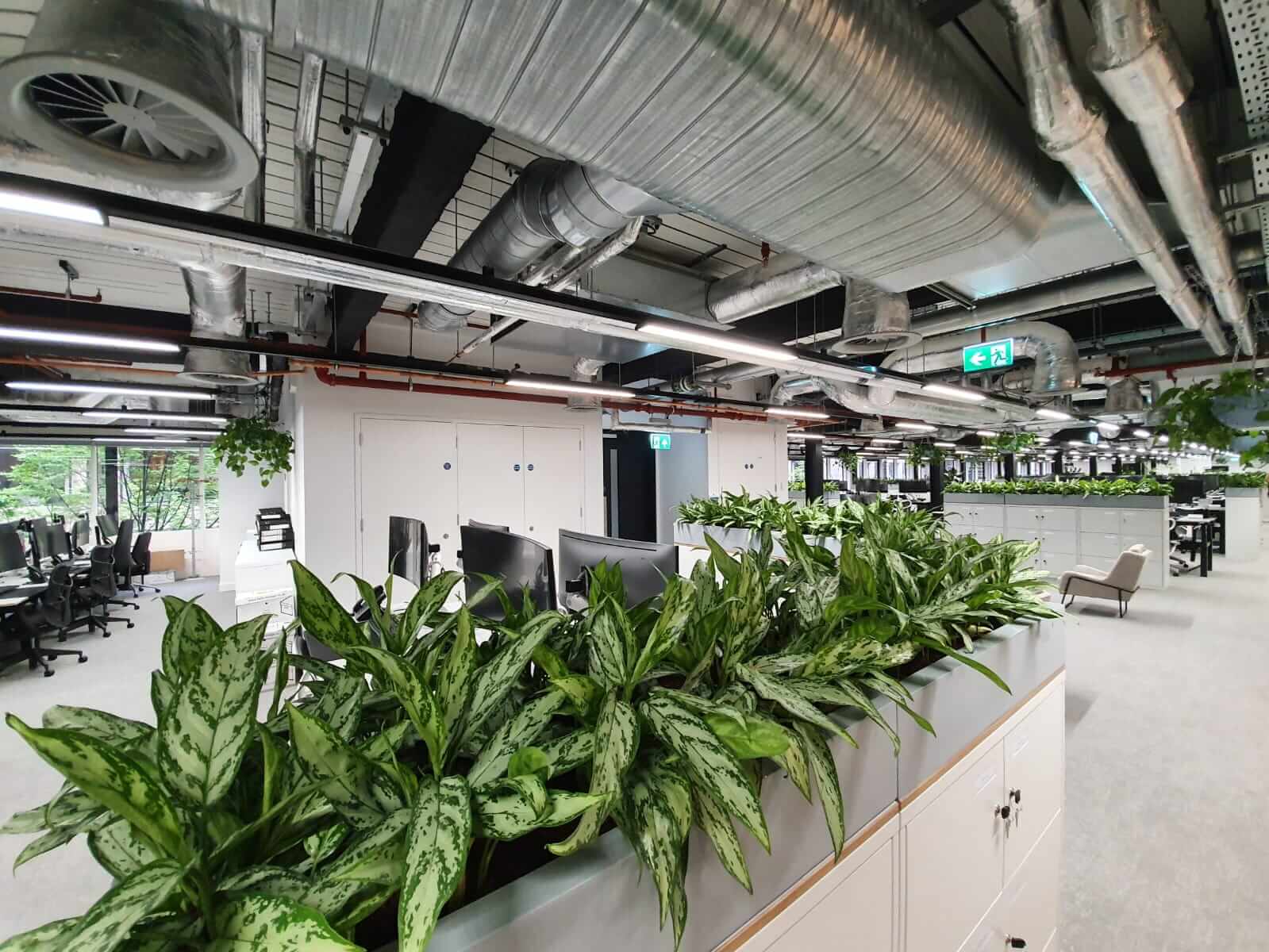The UK workforce has transitioned to accommodate more remote work, presenting both advantages and challenges. Explore the benefits of working from the office, the appeal of cleaner office environments, and how integrating plants into both spaces can create a harmonious and productive work atmosphere, facilitating a seamless transition between home and office settings.
The Pros and Cons of Working from Home
Pros
Apart from self-employed individuals, such as freelancers, remote working was new for the vast majority of people. Most have adapted very well to the circumstances and have reported an increase in their productivity and efficiency. In fact, in a recent survey, 43% of bosses surveyed found that remote work had a positive impact on productivity since lockdown started.
After all, working from home allows you to have more flexibility when it comes to work hours, since you are able to create or adapt your schedule to fit your lifestyle. This means more time with family too.
It might also be your case that working in an office means having to deal with distractions that bring down your productivity levels; so, you may find that working from home allows you to focus on work and makes it easier to take a break.
Another benefit is not having to commute. Not only is commuting time-consuming and, therefore, an interference on work-life balance, but it can also be expensive. Due to this, you probably appreciate being able to save money on fuel or train fares; working from home also means you’re not spending money on coffee runs and eating out.
Cons
However, while there is no doubt that working from home offers a host of benefits, it can also have several downsides, which make people keen to return to the office.
A big issue with remote working is isolation. If you’re used to chatting with colleagues on a daily basis, you probably miss the face-to-face interactions and might end up feeling lonely. Loneliness is not conducive to productivity or creativity. On the contrary, if you feel lonely, you will likely feel less motivated and without energy as well.
Another disadvantage of remote working is how boring the experience can quickly become. Before the pandemic, you may have dreamed of working from home. However, it’s clear that looking at the same four walls every day without a change of scenery can be harmful to your mental health. This means cabin fever, stress or depression.
Working from home blurs the lines between professional and personal lives, as you may have been forced to work from your kitchen, bedroom or living room. Not every home environment is appropriate for remote work either, be it because of children in the room or simply lack of space, which can have a negative impact on work.
Something else to consider is how out of touch people have felt with their wider business community and with their clients. In the office, it’s easier for you to communicate with your peers, partners and customers but, when working from home, these connections are not as strong.
Returning to the Office
People are still working remotely but also returning to the office in a new balance of both.
It is and always has been crucial that workplaces ensure the safety and comfort of their staff, and you’ll be surprised at the key role plants can play in this process.
Plant Barriers
For example, office plants can be used to delineate areas and teams. They allow you to implement social distancing measures easily and, because you’re using plants instead of tape to mark spaces, your employees can benefit from a green and aesthetically pleasing office.
A 2016 study found that cognition can be boosted by 26% in green workspaces, and that people’s wellbeing and productivity improve with plants around them as well. This makes adding green barriers to the office a great argument.
Replacing Desks with Plants
If, because of social distancing, you have to remove desks, you don’t want the office to look sparse and empty. Adding plants to the newly vacated spots is a great solution because it makes the office look attractive and vibrant.
Plants Help with Anxiety
A fantastic benefit of plants in the office is that they ease anxiety and stress levels, perfect to help with the current circumstances.
Plants reduce stress at work, as they help people feel calmer and more positive. Both having visual access to plants and being allowed to care for them (passive and active involvement) can have a calming effect. So, by adding plants to the workplace, you can help your staff fight anxiety and stay relaxed.
Get In Touch
Contact us today to learn more about how we can help you create a peaceful environment that your employees will love.








